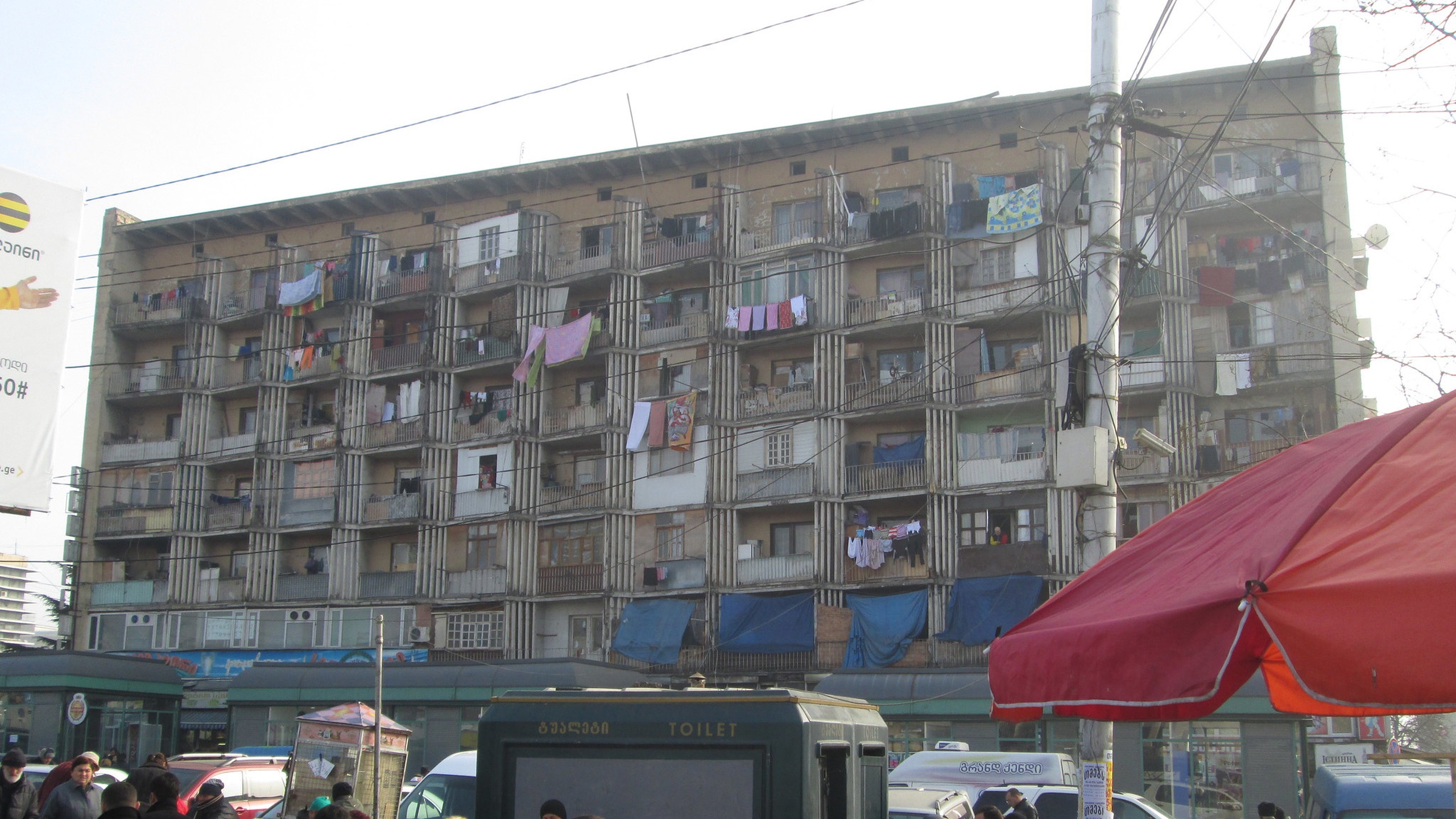Owen Hatherley discusses his latest book, ‘The Adventures of Owen Hatherley in the Post-Soviet Space’, and the revival of Tribune magazine.
Owen Hatherley is the author of a remarkable number of excellent books on architecture, cities, and political aesthetics. His most recent, The Adventures of Owen Hatherley in the Post-Soviet Space is published by Repeater Books. Owen is also the culture editor of Tribune. Owen is also speaking at Southampton Transformed on June 8th.
Part One: Adventures
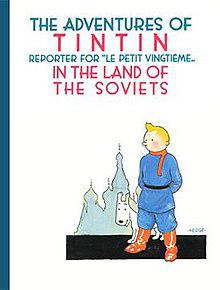
How do you expect The Adventures of Owen Hatherley in the Post-Soviet Space to be read? I got a huge amount out of it, but I wasn’t reading it as a guidebook (as the introduction suggests one should), and even in terms of the aspects of the built environment covered, it’s less touristy than Landscapes of Communism. Unlike tourist guides, there’s a lot of explicitly subjective judgement (and it’s very much the better for that); and in that way—and perhaps the title and cover is suggestive of this too—it felt closer to kinds of travel literature, or even the intersections of travel literature and aesthetics found in something like Ruskin’s _Stones of Venice._
That’s funny, and you’re not the first to have said that this is the less touristic of those two books. I was a bit baffled by this, as Landscapes of Communism was fundamentally a product of staying at Agata Pyzik’s flat in Warsaw a couple of months at a time from 2010 to 2015, doing the groceries and working in the library and trying (and failing) to learn the language. There’s a long section in there about Ksawerów, the neighbourhood I was living in. Whereas I’ve never lived in any of the cities described in Adventures, and I’ve only been having Russian lessons at weekly courses in London (and, again, am not doing terribly well). A few chapters, like those about Moscow and Kyiv, are on cities I’ve come to know well from ten years or so of visiting regularly, but the longest I’ve spent in any of these cities and towns continuously is about a month in Kuldīga in Latvia, which is why that chapter is so long. Some are based on a weekend or even a day’s acquaintance, though I shan’t say which.
So the way in which they are written was actually more touristic, and a lot of them were written as essays for the Calvert Journal in a deliberate travel-writing vein. So the reason I think this is how it’s being read is that while Landscapes of Communism – which I think is by far the best book I’ve written, for whatever that’s worth – was taxonomic, an attempt to answer to a self-set question (‘what did countries governed by Communist Parties do in cities in Europe that was different to cities in countries that weren’t’), these were written rather for the sake of it, and the politics and history maybe comes out in a more relaxed and organic way because of this. Both books (and Trans-Europe Express), by the way, come out of reading a lot of interwar travel writing, especially the books of Robert Byron. I can’t believe nobody’s noticed how much they’re an attempt at doing “a Robert Byron of the left”, something that no-one has asked for ever.
Whereas I wanted Landscapes of Communism to be panoramic, these essays reverted to the way I wrote A Guide to the New Ruins of Great Britain and A New Kind of Bleak (and later Trans-Europe Express ), which is city-by-city, chapter-by-chapter, going into detail and discussing the places as they exist and interpreting them in an extremely subjective way, whereas Landscapes, though it was partly also a document of a relationship (which entirely coincidentally ended very soon after it was published), involved a perhaps colder process of either trying to extract a ‘Communist’ thing from a capitalist context, or assessing whether the way in which it had been changed over time revealed something about capitalism or communism. I was reluctant initially to go city-by-city when writing about Central and Eastern Europe because I felt I didn’t know it well enough, and couldn’t get down to the small details of places in a way I could with Britain. If it reads like I’ve managed to do so, I’m very glad. Another important factor is that there’s a lot more interviews in Adventures, because by the time I wrote it (2015 to 2018) I’d built up some friendships and contacts, either among architectural historians or leftist art historians and artists. Now, I’d be loath to say this means you can learn ‘what people in x think about y’ from this book, because what you’ll learn is what various aesthetes and leftists think about it, but at least it means there’s a few more voices that aren’t mine.
In terms of how I wanted (or rather, expected) it to be read, well – I do think that understanding of ‘real socialism’ or whatever we want to call it is still extremely poor on the Western left (and that’s common to pretty much all tendencies, especially those which set themselves up most strongly in support of or in opposition to it) and I’m keen to try and influence that in certain directions, because frankly, though they made a terrible mess and often did staggeringly stupid and brutal things, they also faced questions any serious attempt at a socialist transition will face, and sometimes came up with very interesting answers to these. I also wanted to present its cities as mundane and ordinary walkable places rather than as a exotic Tarkovskyan dreamscape—places which you can go to yourself if you’ve a British passport much more easily and cheaply than you can go to, say, New York or Los Angeles. There’s also a certain amount of amateur history, applying things from historians of the USSR (and particularly, historians of nationalism within it) like Terry Martin or Kate Brown or Georgi Derlugian to urbanism and architecture and seeing if they stick. But it’s not at all a polemical book or intended to be—where an angered tone comes out it’s directed at those lazy takes on recent events that come from reading too much Timothy Snyder or John Pilger depending on where you think the fascists are (spoiler: everywhere).
As for the title and cover, they’re a joke at my own expense as ‘effete English traveller goes to former USSR’—it came first from Lev Kuleshov’s film Adventures of Mr West in the Land of the Bolsheviks, which I write about in The Chaplin Machine—a Harold Lloyd style slapstick caper where an American visitor is taken around Moscow and shown what he expects to see by a group of dodgy characters who rip him off by playing up to various stereotypes. And then I thought well, what else is called that, but The Adventures of Tintin in the Land of the Soviets (which is a risibly cheap and dim anti-communist comic with a great cover), which was where the cover and the outfit came from.
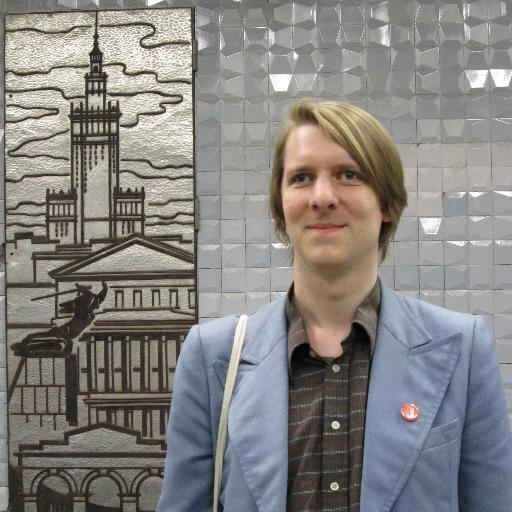
I’m wondering too about the relation between the ostensible form and what feels like quite a sharp turn towards humanism in your work, both in terms of what you value—I found the Slavutych section incredibly touching for this—and methodologically. Rereading Barthes, I was and struck by his argument that the classic form of the travel guide is deeply anti-humanist: “the human life of a country disappears to the exclusive benefit of its monuments… To select only monuments suppresses at one stroke the reality of the land and that of its people, it accounts for nothing of the present, that is, nothing historical, and as a consequence, the monuments themselves become indecipherable and therefore senseless.” Whereas in the way you treat monuments—their making, the relationships and presumptions involved in that, the ways they change, changes and contemporary struggles over their meanings—precisely restore that human life, both in the present and historically.
I can never remember why we’re all meant to think humanism is bad and wrong. I remember being very struck in Zagreb and Belgrade and Ljubljana by how so many of the interesting young socialists were Althusserians, and this was explained to me as being the consequence of so many of the Yugoslav Marxist Humanists around Praxis ending up as nationalists during the Yugoslav collapse. Whether Marxist Humanism ends up in this out of something inherent in it seems hard to prove, though, as does the fact that the Polish or Hungarian Marxist Humanists like Leszek Kołakowski or Agnes Heller ended up as Cold War liberals. But in any case, I was reading these people, and maybe there’s some influence on the book of the way that these thinkers concentrated on socialism as something that succeeds and fails on a human level—in terms of human environments and human interactions—rather than on the extremely abstract level of modes of production and so on (which I got quite a bit into when writing Landscapes, especially through Marcel van der Linden’s compendious Western Marxism and the Soviet Union ). This is a fairly predictable consequence of me making friends there, I think. Even so, I still bristle when people (like the Tory urbanism thinktank Create Streets, for instance) talk about the ‘human scale’ in architecture and cities. Who do they think builds skyscrapers and motorways, aliens?
Staying on Slavutych and the relation to Chernobyl, one of the really valuable things about ‘Adventures…’ for me is your emphasis on that constructive, human moment; and the fact that there are different versions of this throughout the book, based on how people adapted their surroundings, and more widely how they lived in them. There’s something really valuable in a shift in focus from a nostalgia (if it can even be called that) for events (1917), or completed, almost “pure” buildings, towards a focus on processes, on the making of socialism rather than the event of the short revolution. With this, I was wondering how you felt ‘Adventures…’ stood in other engagements with “the post-Soviet space” that might be melancholy or nostalgic or sublime, or within those sort of affects. On the one hand, the sometimes quite kitsch, glossy relation to aspects of Soviet aesthetics—what you’re presumably refusing in wanting ‘Adventures…’ to be used rather than to sit on a coffee table—and on the other hand the sort of post- or pseudo-Tarkovsky, “ruin-porn”, constituted by an exclusion of the human, that Agata Pyzik critiques so well in ‘Poor But Sexy’—even Suede’s “Life is Golden” video is filmed in Pripyat. Is there anything hopeful or generative in either of these tendencies, or do they mark ways in which capital subsumes and appropriates even what was actually existing socialism? How do you make your work useless (or as useless as possible) to these tendencies?
I think it’s so telling how Slavutych seems of very little interest to westerners compared to Pripyat. There’s ghost towns everywhere caused by industrial accident or collapse—dozens in the US. Pripyat isn’t that special in that regard, but it can stand in for a very familiar and very boring story of hubris and failure, localised to the USSR (as if there haven’t been any nuclear disasters anywhere else!). But in Slavutych, you have what is literally the only ‘city of Perestroika’, based on principles of socialist internationalism and humanised modernism. Of course like most of the good things in the USSR it came at an absolutely unacceptable price. But the way it’s ignored—and in favour of that bloody ferris wheel…
Pyzik’s attacks on these things—some of which, full disclosure, were aimed at things she didn’t like in Militant Modernism and Across the Plaza—have been incredibly important for me, but maybe I’m trying to have my cake and eat it in still continuing to write about this area while trying not to fall into the various “blasted empty radioactive wastelands where nobody lives” tropes she identifies. Adventures is massively indebted to an enormous amount of work by scholars of Soviet architecture, particularly in recent years, much of which has been published in English, particularly by Dom publishers—Ievgeniia Gubkina, Ruben Arevshatyan, Boris Chukhovich, Marija Drėmaitė, Olga Kazakova, Kuba Snopek, to name a few. It’s rather striking for me how much their work is completely ignored in the Awesome Ruined Soviet Architecture genre, which acts as if these buildings are totally incomprehensible, so we have books with either no text at all or texts by people who don’t have the faintest idea what the things they’re describing actually are. That said, the western historians who do understand them, like Richard Anderson or Karl Schloegel or Philipp Meuser, don’t get asked either. I do, and I’m a working writer so am generally not going to say no, but I try and make the exploitative thing slightly less exploitative. That’s my answer to the whether I make myself useful to capital part of your question.
I like the point about processes. It comes from two frustrations. One of which is the one I think you identify, which is to treat revolution as ‘the event’. You can find this in a huge amount of western Marxism, from Benjamin to Badiou and most of the Trotskyist and Left-Communist traditions (which are kind of where I come in, having being raised in the former and dabbling in the latter as a student, as is customary). Revolution there is a sort of eschatology, a magical apocalypse event where the masses arise, the lightning strikes, and the next day we all wake up and it’s all ok. This is a great way of not having to think about what to do if you actually have a revolution, and it’s no accident that it’s become most popular in those countries where revolution is least plausible. So yes, I am very interested in the construction that comes afterwards, and I’ve become much more interested since the financial crisis in both social democracy and ‘real socialism’, precisely because they actually did some constructing rather than just some resisting, and I’m clearly far from alone in that.
What’s really interesting is when you get an ambitious project of socialist architecture—like, say, the Moscow Metro, or the Palace of Culture and Science in Warsaw—that both manages to stay socialist in its essential values (as Michał Murawski writes in his Palace Complex), and is experienced as such, while also being an ordinary thing that everyone lives in and uses from day to day. The second frustration, which comes from a totally different place, is an architectural one, which involves treating the thing as designed or at best as initially built as ‘the building’ and having very little interest in what happens to it afterwards—this is what most architectural journalism and a lot of architectural history focuses on. Whereas if you want to understand how a society relates to its buildings rather than how architects do architecture, seeing and understanding the changes that happen to structures are essential. That’s not to say I think these changes are ‘a good thing’—the resident adaptations that run through both Landscapes and Adventures come from desperation and ignorance as often as they come from ingenuity and belonging, and the idea that ‘bottom-up’ urbanism like this is outside of capital is highly dubious (the management-mafia nexus that took power in Russia or Ukraine after 1991 is a very sharp reminder that ‘informality’ is not always our friend). In some cases these changes are profoundly useful to capitalism, but often, very much the opposite—Murawski’s work is great on how much the Palace of Culture and Science has been incredibly resistant to real estate speculation just through the sheer fact of how it’s designed and arranged in space.
Also, I did not know that about Suede! Shame, as Brett’s memoir shows a man with good understanding of the complexities of the built environment as lived experience.
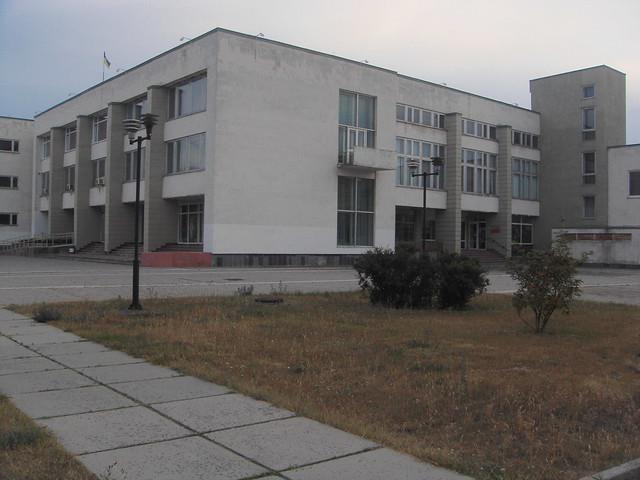
I was struck too by your self-criticism around the desire to see things as “ruins” and various “rash theories” in ‘Militant Modernism’ with regard to the ASNOVA Constructivist Factory Kitchen in St Petersburg. I was wondering what has changed for you? Was it merely seeing the building itself, and the kinds of relations to it that involves? Or developing a more general, more humanist critique of that sort of romantic response?
It was bollocks, essentially—I was writing about places I hadn’t been, about things I hadn’t seen, and obviously I made massive mistakes as a result. The ‘rash theories’ were an attempt to try and do a Soviet hauntology without realising that the most convincing versions of hauntology are about the warpings and transformations of real memory, and of possibilities once experienced as actual that linger around in a different present. That’s not to say you can’t take a hauntological approach to post-Communism—quite the reverse, and, for instance, Olga Drenda’s Duchologia Polska project does this really well in the context of the material culture of the Polish People’s Republic and its aftermath, all the weirdness that happened before it settled down to ‘become a normal European country’. But for a project so much about memory to work, it has to be about your own memories, either collectively or personally—which is one reason why I’m much happier ten years on with the things in Militant Modernism about Southampton than I am with those on St Petersburg.
The building you refer to there is one I write about in Militant Modernism via Richard Pare’s photographs of it derelict and stripped back to its frame in his book The Lost Vanguard, and I do a lot of hyperventilating about this epic ruined remnant of a great utopian experiment which has died utterly leaving only these scattered incomprehensible traces, etc. Then I went there a year after that book was published, and it had been patched up and done up with a new leisure centre put into it and looked like it could have been in Hackney—turned into a multi-functional public building, which is what it was built as anyway. So yes—and again, this comes direct from Pyzik—it’s quite cruel and ignorant to talk about people’s homes (or in the case of places like Pripyat, what were once people’s homes) and act as if nobody lives (or lived) in them. But I don’t think that’s a critique of ‘romanticism’ as such, just that there are less naff versions of it. The Constructivists themselves were obsessed with the question of everyday life in a quite mundane sense—of changing and influencing it in various ways. It probably does them more justice to see that as a potentially still ongoing project.
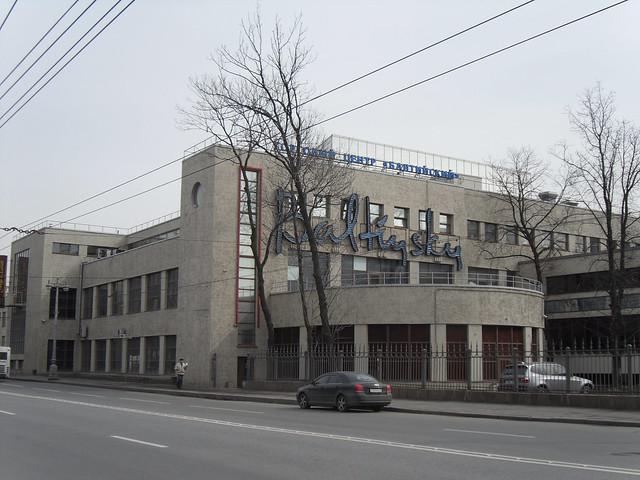
Part Two: Tribune
With Tribune, why do you think it was important to take over (rescue, in effect, I guess) a venerable institution of the left (albeit of perhaps a different tradition to Corbynism) rather than set up something new? Is there not a succumbing to nostalgia here, an anxious conjuring up of spirits of the past, which might sit oddly with some of the critiques of this mode of the British left in ‘The Ministry of Nostalgia’?
There’s quite a wide spectrum of backgrounds and opinions among the four of us working on the new Tribune but one thing we absolutely agree on is the importance of trying to put history back into the movement. That doesn’t mean we all think of that history in exactly the same way, but it does mean we put a lot of stress on it, and while people have responded to this in different ways, it has been noticed that this is what we’re doing, which is good. The reason why we’re doing that answers your question, really. Rather contrary to my complaints about the British left in Ministry of Nostalgia, the influx of often young people into Labour has been very good at setting up new networks, new infrastructure and new institutions – Momentum, The World Transformed, Novara (although it predates that shift), and obviously New Socialist are the brightest examples of these, but we could extend that to the often crass but very successful Corbynite news sites. Meanwhile, with the exception of the unions and a couple of rather elderly Labour left groupings, there’s very little that predates 2015.
As so many people have observed, generationally Corbynism really is concentrated in the very young or the very old—25 year olds and 65 year olds, basically. The youth can tend to have little sense of history because all the links have been broken through that 30-40 year age gap, and the older activists perhaps have too much of a sense of their history, with a tendency to want to re-fight old battles in exactly the same way. So it seemed like it would be both fun and useful to take over one of the old institutions of the Labour left and to use it to build into the new left a more critical familiarity with socialist history, and of how we can learn from its successes and failures. There is perhaps also a certain trolling aspect, given how much the Tribune Group of Labour MPs has been, let’s say, not entirely on board with the leftward shift in the Labour membership.
Now, necessarily that continuity is a little bit of a contrivance—there isn’t much actual continuity with what Tribune had become, so there is a certain amount of trying to leap back across time to what it had been between the forties and seventies (though there’s also a lot of respect for Mark Seddon’s time as editor, when it was a rare coherent opposition to Blairism). The Tribune tradition’s virtues, in my view, are in the way it combined a strong commitment to a socialist transformation with a sense of the practicalities of bringing it about, and in the fact that their internationalism and refusal of Cold War binaries went alongside an engagement with liberation movements that were really taking place. Bevan’s friendships with Nehru and Tito and his interest in the Non-Aligned Movement are very important in that regard. Also, I have to say, the fact that Tribune came originally out of the Socialist League—that is, out of trying to make common cause between Labourites, non-aligned socialists and Communists—is a good description of how I see its potential audience today, whatever we might think about that coalition in the 1930s.
As to what history it is we’re trying to bring into the movement, maybe some of that can tend towards nostalgia—there maybe are a few too many black and white photographs of our great historic leaders in nice suits on the Instagram account, though I’m very happy with the teacups and pets and spring views. In general, we’ve tried to be as modern as possible in terms of design, and as bright, confident, and optimistic in presentation as we can be, rather than lachrymose and melancholic. I certainly don’t think we’re doing any ‘anxious conjuring’. And while there is a certain amount of Bevan And Benn, the protagonists of the usable past we’ve been trying to build also include, to name a few subjects, Tish Murtha, Paul Gilroy, Mario Mieli, Natalia LL, SENEZH, Tan Cheng Siong, Harry Hay, Anna Home, Agnes Varda, Ernst Toller, the Associates, Fernand Léger, Gran Fury, Herbert Marcuse, Thomas Sankara, Olof Palme and Rosa Luxemburg, as well as, say, Jennie Lee, the Kinder Scout mass trespass, the Home Guard or the 43 Group. I think taken as a whole that’s a fairly unusual pantheon, so I’m quite confident we’re not falling into the ‘Labour—I Like The Early Stuff’ traps I wrote about in that book, so far - although that is a big risk.
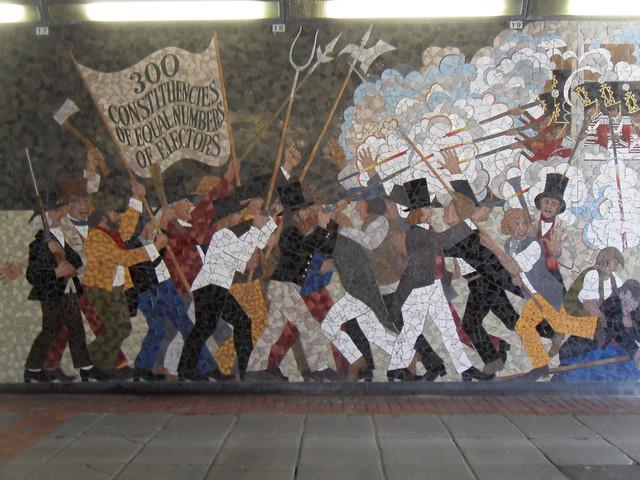
As culture editor, how do you see culture as a part of a contemporary socialist project, and how does this stand in the Tribune tradition? It seems a lot of that tradition, especially Michael Foot but also, in a slightly different way Orwell, tended to still treat “culture” not in the Raymond Williams sense as something ordinary, as something made and institutionalised by working class people, that is, in a significant way as where socialism happens (and it feels that a fairly similar conception of culture is working in ‘Adventures…’ around the built environment), but on a fairly bourgeois model as something to be consumed or possessed by a well-rounded human.
I think Orwell’s example here—unbearable and tedious as most Orwellism is—runs contrary to what you’re implying, although Foot, with his pantheon of great 18th century freethinkers, perhaps fits rather better. Orwell’s conception of culture, on the other hand, went far beyond the Canon of Great Dissenters and onto something weirder and more expansive which could fit Donald McGill and Victor Serge and speakers corner and Wyndham Lewis and ways of drinking tea into the same space. If I’m trying to build on anything that Orwell did when he was the literary editor of Tribune (and obviously he’s what a lot of people think of when they think of Tribune), it’s his very broad and idiosyncratic conception of culture. It’s absolutely not his patronising bullshit about what real working class people are like, his rampant bigotry, his ‘schoolmasterly’ writing rules (in Jonathan Meades’ phrase), and the general failure of so many of his fans to read anything more than him and JK Rowling.
I think of the culture section as two parallel strands. One of them is a group of writers who I wanted to have the chance to build up over time a proper body of work, which few writers get the chance to do in print magazines today. So there’s Juliet Jacques, Robert Barry, Douglas Murphy, Hannah Proctor, Huw Lemmey, Rhian E Jones, Carl Neville and Charlotte Lydia Riley writing in the magazine on clearly defined subjects—architecture, history, art, psychology, film, music—though Rhian and Juliet are both on a somewhat different remit to write on culture in a very broad sense, along with a themed book reviews page by me, and a changing ‘dispatch’ from a city outside the UK, which have so far been M Sharmarke on Stockholm, Agata Pyzik on Warsaw, and Asa Roast on Chongqing. Whereas the culture articles on the website are intended to be rather broader and more experimental, and written by a larger and often less experienced group of people—one which I would like to be much larger and much less experienced. As to the conception of culture, I see it as a way of trying to incubate something specifically counter-cultural, as the left has lost this every bit as much as it has lost links with much of its history. I don’t mean that in terms of the counter-culture that existed when you or I were in our twenties, that grim Manu Chao and white dreads and mock reggae thing, but in terms of it being a part of everyday life and a place where you can develop ideas that go beyond waiting for the revolution, or in our current predicament, waiting for a parliamentary majority.
Prompted a bit by thinking about the contrasts between the current, developing but still inadequate, intellectual and cultural infrastructure of the left and an earlier left-cultural infrastructure—and reading the Mark Fisher collection made me think about his contribution to building this earlier infrastructure—do you think anything’s been lost? And, if so, what would it take to recover it? I wonder if our theoretical and political work has become too explicit, too trapped in a restricted conception of what merits attention, in contrast to an earlier attitude and practice, where the politics had, in some ways, to remain out of sight or undercover in cultural criticism? Equally, does a loss of a particular sort of blogging infrastructure limit egalitarian and communal aspects or even access to certain sort of platforms?
First of all, going back to Raymond Williams and “culture is ordinary”. It might sound odd given how important Williams is for a lot of people on the left now, but he really wasn’t at all part of how culture was conceived by the blogosphere you’re talking about—some of whom, like Carl Neville, Douglas Murphy and Rhian E Jones, are now regulars at Tribune. Excepting Rhian here, I don’t think many of us had really read Williams much, and relied on much more on a music journalism and high theory canon. This had very little room for any UK Marxism, which I think we thought of as being a bit tweedy and boring—that’s very much not my view now, but it was in 2005 when I started blogging. Now, I think the left can probably learn more useful things from Raymond Williams and Doris Lessing and Stuart Hall and EP Thompson than it can from JG Ballard and Guy Debord and Paul Morley and Gilles Deleuze—but let’s face it, that’s what the K-Punk-aligned blogosphere was all about, though Mark’s late work on Stuart Hall showed he was moving sharply away from that himself. Even the line ‘slow cancellation of the future’, which he attributed to Bifo, was used much earlier—exactly the same phrase!—in Williams’ Border Country, which I very much doubt Mark would have read. Where he did really differ from Williams was in a focus on culture being extraordinary, and transformational. Whether it’s a Salford shipping clerk making Hex Enduction Hour or working class youth making bizarre futurist music in the rave scene or the consciousness-raising experiments he wrote about in “Acid Communism”, none of this was about culture as a sort of daily bread, but rather culture as the Ostranienie of the Russian Formalists, an estrangement, something where suddenly you see the world in a different way and possibilities open up. That was how the blogs saw culture, for the most part, and I’d like to bring that into Tribune.
The second and last point is about the blogging infrastructure you’re talking about, and its disappearance and replacement with magazines, books, and Twitter. I think there’s a certain amount of nostalgia for blogging around now, and for some of us that’s compounded by grief, and by the empty space Mark has left. I’m not really sure if I share the nostalgia. There was a lot of camaraderie in that very small group, it was very intense and very personal, but that group that created Zer0 Books really dissolved around a decade ago, and Repeater is its continuing legacy. There was also, as I remember it, a lot of cliquishness, many expulsions (a few of them richly deserved), and proportionally, as many comments box flamewars, anonymous trolls, and misogyny and cruelty as there is on Twitter, just in a much smaller group. Even some of the more obnoxiously Stalinist Left Twitter trolls are exactly the same people that were Blog Trolls 12 years ago, and they know who they are. Certainly the shift from Blogspot to Twitter and to apps in general is part of the general privatisation of the internet, but don’t forget Blogger was owned by Google, it wasn’t a workers co-op.
The blogs did allow people who were not part of the PPE networks that sustain British politics and journalism (in 2019 any published British writer under 40 has either come up through a) Oxbridge or b) the internet, and very seldom both) to develop ideas at length, and to grow and develop as a writer at their own pace. You can’t do this on social networks, partly because of space and partly because of its built-in attention deficit, although Medium is a sort of dull shadow version of the blogs today. Speaking for myself, I’ve occasionally commissioned people for Tribune on the basis of their Twitter threads or on the basis of them being extremely good at Left Twitter (like Benjamin Stephens or M Sharmarke) but it’s not really a substitute as such, and it does have built-in inflammatory flaws which have become extremely apparent over the last couple of years. However, it is also much larger and actually more accessible than the blogs were—don’t forget that the blogosphere you’re talking about was mostly a group of people who all knew each other in London, even if some of us knew each other specifically because of our blogs, and bearing in mind there were people around like Anwen Crawford and Giovanni Tiso who managed to participate in it while living on the other side of the world.
It’s also only partly true to say that politics were ‘underground’ in this. Don’t forget, there was a parallel group of hard-left politics bloggers like Richard Seymour, Anindya Bhattacharyya and James Meadway that interesected with what for a better term you could call the ‘K-Punk Group’—it’s no accident that one of the earliest and best Zer0 Books was Seymour’s The Meaning of David Cameron. So I’m not very worried about there being a dissolving of culture into politics as such, as one reason why we used culture as a sort of proxy for political arguments is that were in a moment of total political defeat. We’re obviously not now. In fact, we’re in a position to build something much more collective and much much wider than the blogs ever were, and reading groups and The World Transformed, say, are actually far better ways of doing that than ten people yelling at each other under a blogpost about David Cronenberg.
All images in this article supplied by Owen Hatherley.
The Adventures of Owen Hatherley in the Post-Soviet Space is available from Repeater Books. New Socialist $5 and above subscribers can get 50% off one book from Repeater.
